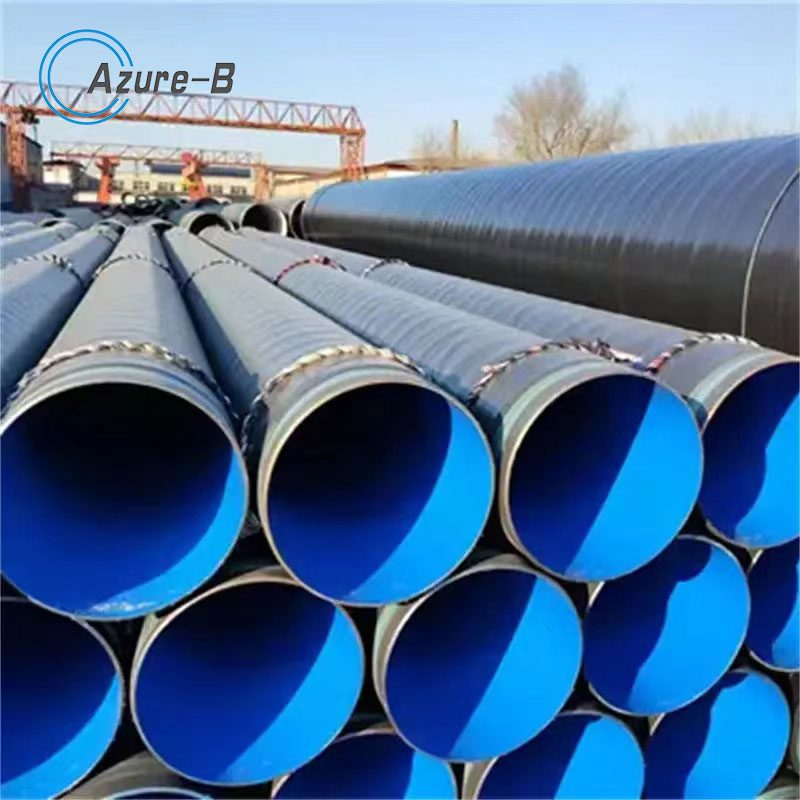Line Pipes are used for energy transportation
A line pipe is a type of pipe used for transporting fluids, such as oil or gas, over long distances. It is typically made of steel and designed to withstand high pressure and external loads. Line pipes are commonly used in the energy industry to construct pipelines for the transportation of resources from production sites to refineries, processing plants, or distribution points. They are manufactured with specific standards and undergo stringent quality control measures to ensure their durability and reliability.
In the vast network of energy transportation, line pipes play a crucial role in delivering oil, gas, and other fluids over long distances. These pipes form the backbone of energy infrastructure, ensuring a steady supply of resources to power industries, homes, and economies around the world. In this blog, we will delve into the fascinating world of this pipes, exploring their construction, materials, applications, and significance.
- What are Line Pipes? They are specially designed tubes used for transporting various fluids, primarily oil and natural gas, from production sites to processing facilities, refineries, and distribution points. They are typically made of steel due to its strength, durability, and resistance to corrosion.
- Construction and Materials: This kind pipes are manufactured through a process known as pipe making, which involves several stages. Initially, flat steel plates are formed into a cylindrical shape and welded longitudinally. This results in a continuous pipe that can be further processed to achieve the desired properties. The most commonly used material for this kind pipes is carbon steel, while alloy steels are also employed for specific applications.
- Types of Line Pipes: a) Seamless Line Pipes: These pipes are produced without any welding seams, offering higher strength and reliability. They are suitable for high-pressure and critical applications where integrity is paramount.
b) Welded Line Pipes: Welded pipes are constructed by joining sections of steel using various welding techniques. They are more cost-effective and commonly used for less demanding applications or when large diameters are required.
- Coatings and Corrosion Protection: To enhance the longevity and corrosion resistance of line pipes, they are often coated with protective layers. Common coatings include fusion-bonded epoxy (FBE), polyethylene (PE), and three-layer polyethylene (3LPE). These coatings provide a barrier against external elements and help prevent corrosion, ensuring the integrity of the pipeline.
- Applications and Significance: Line pipes are vital components of energy infrastructure, enabling the efficient transportation of oil and gas across vast distances. They connect oil fields, natural gas wells, and offshore platforms to refineries, processing plants, and distribution networks. Without Lpipes, the global energy supply chain would be severely disrupted, impacting industries, economies, and everyday life.
- Challenges and Innovations: The line pipe industry faces various challenges, including harsh operating conditions, environmental concerns, and regulatory compliance. To address these issues, ongoing innovations focus on developing advanced materials, coatings, and welding techniques that enhance durability, reduce maintenance requirements, and improve overall pipeline safety.

Conclusion:
Line pipes serve as lifelines for the energy sector, facilitating the transportation of oil, gas, and other fluids across vast distances. Their construction, materials, coatings, and applications are critical factors in ensuring the safe and reliable delivery of energy resources. As technology advances, the line pipe industry continues to evolve, embracing innovations that enhance efficiency, sustainability, and environmental stewardship. With their indispensable role in the global energy infrastructure, line pipes remain an essential component of our modern world.

